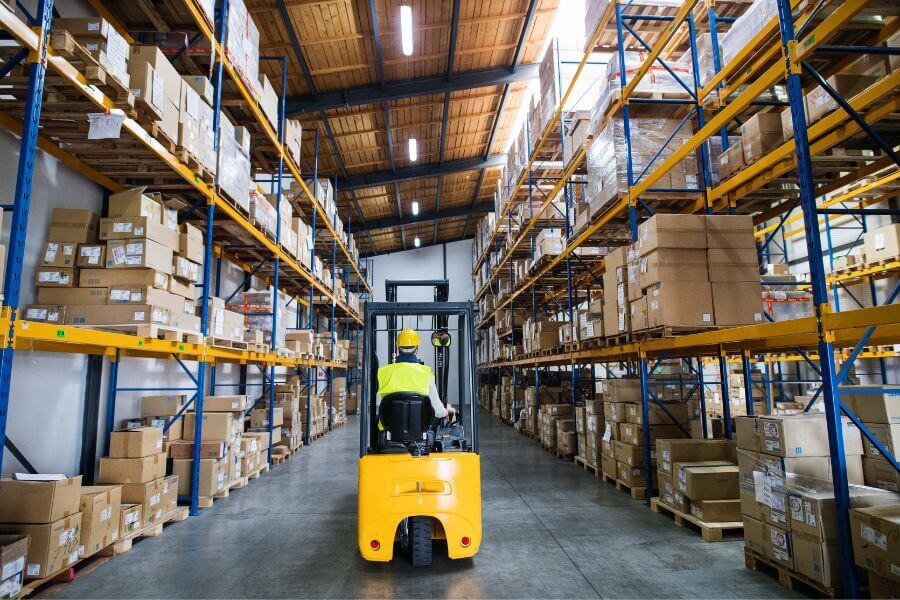What is Ex Works (EXW)?
Ex Works is one of the eleven standardized international trade terms, known as Incoterms, published by the International Chamber of Commerce. These terms are designed to clearly define the responsibilities, costs, and risks associated with the global transportation and delivery of goods.
In simple terms, Ex Works means that the seller makes the goods available at their premises (factory, warehouse, etc.) and the buyer is responsible for all aspects of transporting those goods to their final destination. This includes loading the goods, arranging transportation, handling export and import procedures, and covering all associated costs and risks.
What are the key features of Ex Works?
- Minimal seller responsibility: The seller’s only obligation is to make the goods available at their premises.
- Maximum buyer responsibility: The buyer assumes all risks and costs from the moment the goods are made available.
- Transfer of risk: The risk transfers from the seller to the buyer when the goods are made available at the agreed location.
- Applicable to all modes of transport: EXW can be used regardless of the transportation method (sea, air, road, or rail).
- Domestic and international use: While commonly used in international trade, EXW can also be applied to domestic transactions.
What are the responsibilities under Ex Works?
To fully grasp the implications of Ex Works, it’s essential to understand the specific responsibilities of both the seller and the buyer under this Incoterm.
Seller's responsibilities
- Prepare the goods: The seller must package the goods appropriately for transport and label them as required.
- Make goods available: The seller needs to have the goods ready for collection at the agreed time and place (usually their premises).
- Provide necessary documentation: The seller must supply any documents required for the buyer to receive the goods.
- Assist with export licenses: If requested, the seller should provide information to help the buyer obtain any necessary export licenses or authorizations.
Buyer's responsibilities
- Collect the goods: The buyer must pick up the goods from the seller’s premises at the agreed time.
- Load the goods: The buyer is responsible for loading the goods onto their chosen mode of transport.
- Arrange transportation: The buyer must organize and pay for all transportation from the seller’s premises to the final destination.
- Handle export and import procedures: The buyer is responsible for all export and import clearances, including obtaining necessary licenses and paying any duties or taxes.
- Bear all risks: The buyer assumes all risks of loss or damage to the goods from the moment they are made available by the seller.
- Pay for the goods: The buyer must pay the price as agreed in the sales contract.
What are the advantages of Ex Works?
Ex Works offers several benefits, particularly for sellers. Let’s explore some of these advantages:
- Simplicity for sellers: EXW is the simplest arrangement for sellers as they have minimal responsibilities and risks.
- Clear pricing: The EXW price typically represents the base cost of the goods without any additional charges for shipping or export.
- Flexibility for buyers: Buyers have complete control over the shipping process, allowing them to choose their preferred carriers and potentially negotiate better rates.
- Consolidation opportunities: Buyers can easily consolidate shipments from multiple suppliers in the same country, potentially reducing overall shipping costs.
- Transparency: EXW provides clear delineation of responsibilities, reducing the potential for disputes.
What are the disadvantages of Ex Works?
While Ex Works can be advantageous in many situations, it’s not without its drawbacks. Here are some potential issues to consider:
- Complexity for inexperienced buyers: EXW places a significant burden on the buyer, which can be challenging for those unfamiliar with international shipping procedures.
- Export clearance difficulties: In some countries, it can be problematic for foreign buyers to handle export clearance, potentially leading to delays or additional costs.
- Limited seller involvement: The seller’s lack of involvement in the shipping process means they have little control over when or how the goods leave their premises.
- Insurance gaps: There may be a gap in insurance coverage during the loading process, as the risk transfers to the buyer before the goods are loaded.
- Potential for higher overall costs: While the EXW price may be lower, the total cost to the buyer (including all shipping and clearance expenses) may end up being higher than with other Incoterms.
Ex Works vs. other Incoterms
To better understand Ex Works, it’s helpful to compare it with some other commonly used Incoterms:
- EXW vs. FCA (Free Carrier): FCA requires the seller to deliver the goods to a named place and clear them for export. This can be easier for buyers who struggle with export procedures.
- EXW vs. FOB (Free on Board): FOB is used only for sea and inland waterway transport. The seller is responsible for delivering the goods on board the vessel, making it more convenient for buyers.
- EXW vs. CIF (Cost, Insurance, and Freight): CIF places much more responsibility on the seller, who must arrange and pay for shipping and insurance to the named port of destination.
In summary, Ex Works (EXW) is a shipping term where the seller makes the goods available at their premises, and the buyer is responsible for all aspects of transportation, including loading, shipping, and customs clearance.







